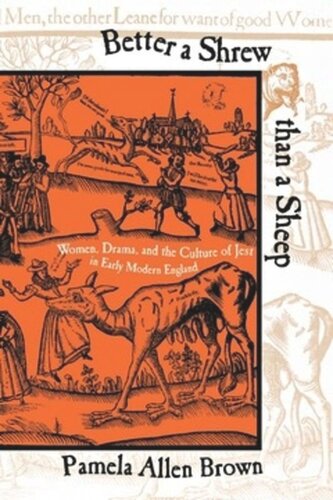

Most ebook files are in PDF format, so you can easily read them using various software such as Foxit Reader or directly on the Google Chrome browser.
Some ebook files are released by publishers in other formats such as .awz, .mobi, .epub, .fb2, etc. You may need to install specific software to read these formats on mobile/PC, such as Calibre.
Please read the tutorial at this link: https://ebookbell.com/faq
We offer FREE conversion to the popular formats you request; however, this may take some time. Therefore, right after payment, please email us, and we will try to provide the service as quickly as possible.
For some exceptional file formats or broken links (if any), please refrain from opening any disputes. Instead, email us first, and we will try to assist within a maximum of 6 hours.
EbookBell Team

4.1
100 reviewsIn a study that explodes the assumption that early modern comic culture was created by men for men, Pamela Allen Brown shows that jest books, plays, and ballads represented women as laugh-getters and sought out the laughter of ordinary women. Disputing the claim that non-elite women had little access to popular culture because of their low literacy and social marginality, Brown demonstrates that women often bested all comers in the arenas of jesting, gaining a few heady moments of agency. Juxtaposing the literature of jest against court records, sermons, and conduct books, Brown employs a witty, entertaining style to propose that non-elite women used jests to test the limits of their subjection. She also shows how women's mocking laughter could function as a means of social control in closely watched neighborhoods. While official culture beatified the sheep-like wife and disciplined the scold, jesting culture often applauded the satiric shrew, whether her target was priest, cuckold, or rapist. Brown argues that listening for women's laughter can shed light on both the dramas of the street and those of the stage: plays from The Massacre of the Innocents to The Merry Wives of Windsor to The Woman's Prize taught audiences the importance of gossips' alliances as protection against slanderers, lechers, tyrants, and wife-beaters. Other jests, ballads, jigs, and plays show women reveling in tales of female roguery or scoffing at the perverse patience of Griselda. As Brown points out, some women found Griselda types annoying and even foolish: better be a shrew than a sheep.